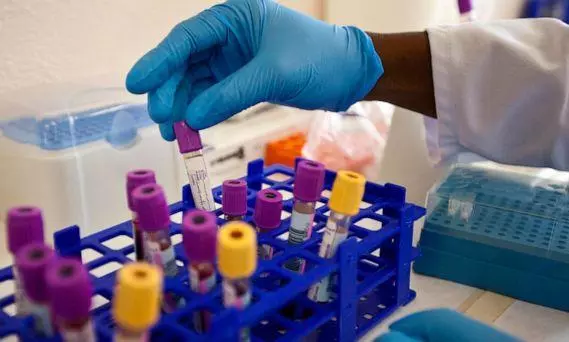
Gut health restoration emerges as promising treatment for HIV progression
text_fieldsResearch published by JCI Insight, based on a study conducted on monkeys, found that systemic immune activation – a predictor of the progression of human immunodeficiency virus type 1 (HIV-1) – alone does not suffice to oversee the progression of HIV.
Treating inflammation to control the advancement of the disease and treat other comorbidities is not sufficient treatment.
To slow down the progression of HIV into AIDS, this study proposes the restoration of gut health as the main treatment plan of action. The study uses simian immunodeficiency virus (SIV), the variant of HIV found in monkeys.
The immune cells in the intestines carry immunologic memory that prevents the attack of pathogens, including the HIV virus. However, the virus targets these cells, attacking the intestines. Upon destruction of these immune cells, the gut microbiota enters the bloodstream.
"Every study so far targeting systemic inflammation by addressing immune activation has had very short-lived results," said research author Cristian Apertei, a professor of immunology at the University of Pittsburgh.
“Upon reflection, we realized those results told us something very important: Inflammation generated by the virus damaging the intestinal lining is driven by a separate mechanism from immune activation. We just had to prove it,” he added.
The mechanism of HIV infection involves the hijacking of "helper T cells," a vital type of immune cells that create antibodies, to replicate the virus instead of fighting the virus. Previous treatment studies have mainly focused on preventing this process, unable to restore the body to the state of health prior to the infection.
People with high-progression HIV have damaged intestines and less healthy gut bacteria. A focus on improving gut health to reduce the progression of the virus was not a significant part of treatments.
In African green monkeys, the researchers found that the SIV virus did not progress into AIDS, nor did it cause serious damage to the gut, as seen in humans. “In this study, we have directly demonstrated that intestinal dysfunction is the main determinant of systemic inflammation and disease progression,” said research author Ivona Pandrea, professor at Pitt Public Health.
The professor added, “This points to an urgent need for therapies aimed at preserving gut integrity to avoid accelerated ageing, comorbidities, and premature death in people living with HIV.”
The study on monkeys focused on increased immune activation for over 100 days, even after which the virus had not progressed to a chronic state. Other species face this level of progression in half the time it took for these monkeys.
The researchers are working on improving the gut health of people with HIV infections through pre-and probiotics, diets, and gut microbial transplants.
PTI Input























